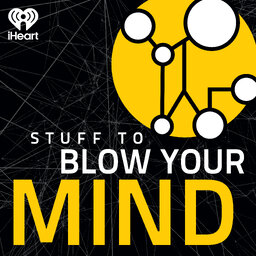The Overview Effect: Tripping Out in Space
Does life in space permanently alter an astronaut's mind? Join Robert and Julie as they analyze the physical and mental changes human beings experience in outer space, including the overview effect.
Learn more about your ad-choices at https://www.iheartpodcastnetwork.com
In 1 playlist(s)
Stuff To Blow Your Mind
Deep in the back of your mind, you’ve always had the feeling that there’s something strange about re…Social links
Follow podcast
Recent clips

Crab Bag, Part 2: It’s Raining Crabs (Hallelujah)
44:24

The Monstrefact: Marvel’s Squirrel Girl
04:27

Crab Bag, Part 1: The Crabs are Back In Town
54:40
 Stuff To Blow Your Mind
Stuff To Blow Your Mind